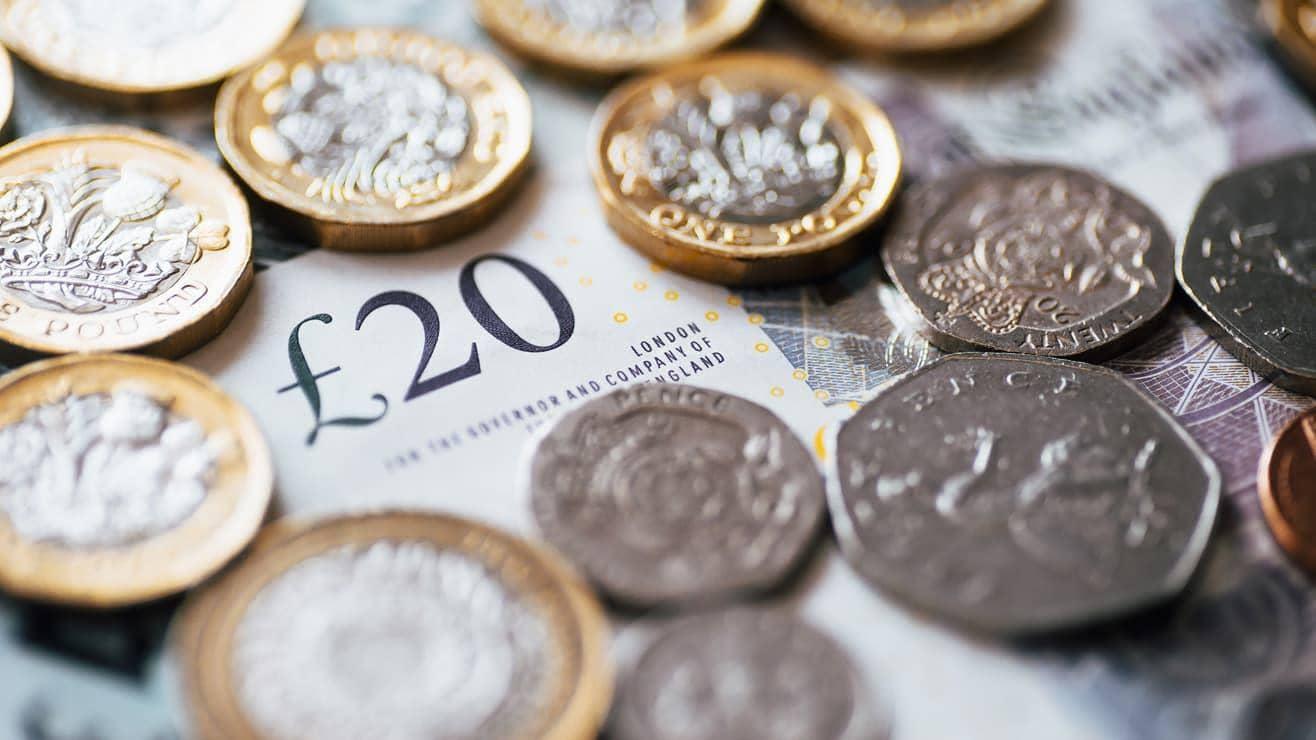
Investment Account
Low cost, flexible investing

4 minute read
We look at some of the reasons why investors might keep a cash holding in their portfolio.
Who's it for? All investors
The value of investments can fall as well as rise and you could get back less than you invest. If you’re not sure about investing, seek professional independent advice.
It’s wise to have some savings set aside for an emergency, and you may also want to keep some cash available to invest in the stock market when you feel the time is right.
Financial advisers often recommend having the equivalent of at least six months’ income in cash to cover any unexpected expenses. This will typically be held in easy access cash savings accounts, so it’s easy to get your hands on quickly but the amount needed will differ depending on your individual circumstances.
In addition to these emergency savings, you may decide to hold some savings aside until you’re ready to invest this money.
We don’t offer personal advice, so if you’re not sure whether the amount of cash you keep might be too high or low for you, you should seek independent financial advice.
If you’re cautious and dislike taking risks, you may feel more comfortable holding a greater amount of your cash in a savings account than someone who’s happy to accept a greater level of uncertainty in the hope they might benefit from potentially higher rewards.
When you invest, you hope for higher returns than you can get from staying in cash, but you need to accept that you could get less, as investments can fall as well as rise in value.
Remember though that cash itself is not risk free. Although keeping a proportion in cash can give you peace of mind that this capital will be preserved, it’s worth bearing in mind that if inflation, or the rising cost of living, is higher than the interest rate paid on your savings account, this essentially means that the value of your money is falling over time. Inflation can eat into investment returns too, because investments must also keep up with the rate of inflation to increase real purchasing power.
Working out how long you’ve got before you’ll need your money can also help you decide what proportion of your investable assets you might want to hold in cash.
Investing is only for the long term, at least five years but ideally much longer, so if you’ve got plenty of time before you need to meet your financial objectives, you might decide you’re happy to keep a smaller amount of cash in your investment pot. Bear in mind, however, that no matter how long you hold an investment, there’s always a chance you could get back less than you put in.
If you think you may need to get your hands on your money within the next five years, keeping the amount you’ll need in cash may well be the best option.
Again, make sure your money is earning as much interest as possible to help reduce the impact of inflation.
Some people keep a large amount of cash in the hope that the perfect investment buying opportunity will come along.
However, if you're holding a significant proportion in cash because you’re waiting to invest at the right price, remember that market timing is extremely difficult.
Prices can move up and down very quickly and it’s impossible for anyone to predict exactly the right time to buy.
To help reduce the risk of putting a cash lump sum into the market just before it falls, one option you might want to consider is drip-feeding your money into investments gradually.
The main advantage of this approach is that you’ll buy more shares or other investments when prices are low and fewer when prices are higher, so ultimately you’ll end up paying the average price over a fixed period. This can help smooth out market volatility and means there won’t be any delays in putting your money to work.
While there can be benefits to investing regularly rather than as a lump sum, you should remember the impact fees have on your investment.
The investments you choose to hold in your portfolio will depend on your goals, approach to risk and how long you plan to invest. It’s important to ensure your portfolio is properly diversified across a wide range of asset types and sectors, so that if one investment performs badly, hopefully other investments with higher returns will make up for any losses.
If you’re not sure how to achieve the right balance of investments to create the risk profile you’re comfortable with, one option might be to consider a Ready-made Investment. These invest in a range of different assets, with the fund manager responsible for achieving the right balance of investments. Ready-made Investments won’t be suitable for all investors, however, and whether they’re right for you will depend on your personal circumstances. Seek independent advice if you’re unsure where to invest.
Our Ready-made Investments, for example, are a selection of Barclays funds that each aim to increase the value of your investments over time, using a broad mix of asset classes from across the globe.
There are different types of Ready-made Investment that offer different varieties of asset mix, depending on your attitude to risk.
For example, if you have a strong appetite for risk, you may decide to invest in a Ready-made Investment with a higher proportion invested in shares than other assets, whereas if you’re more cautious, you may prefer a lower proportion in shares and more in cash and bonds.
As the fund manager is responsible for organising investments across the different types of asset, you won’t have to worry about the exact proportion you hold in each. Please bear in mind that we're not recommending Ready-made Investments as being suitable for you based on your personal circumstances, and we don’t offer personal financial advice.
If you’re unsure about this type of investment’s suitability for you, or you’re not confident about making your own investment decisions, you should seek independent advice.
The value of investments can fall as well as rise and you could get back less than you invest. If you’re not sure about investing, seek independent advice.

Low cost, flexible investing

Easy, tax-efficient, low-cost investing
Grow your money in a tax-efficient ISA. Invest up to £20,000 per year with a simple low annual charge and dedicated customer support.
Get started in minutes and secure your annual allowance with a debit card, a monthly Direct Debit or by moving money from your Barclays account. There’s no charge to hold cash if you need some time to decide where to invest.
You can also transfer an existing ISA1 to benefit from our award-winning ISA service.2

Keeping up to speed with the issues that could affect your investments is important for all smart investors. Read our latest articles to discover topical economic and market insight, investment ideas, and some of the trends which are shaping the world today.